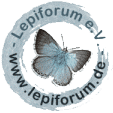2. Biologie
2.1. Nahrung der Raupe
Strenggenommen noch unbekannt! Laštůvka & Laštůvka (2005: 9) können aber schreiben: "Trifurcula baldensis sp. n. very probably develops in the stems of Genista radiata, both specimens were collected in the bushes of this plant growing at 1600 m a s.l. on the south-facing habitats on Monte Baldo."
3. Weitere Informationen
3.1. Faunistik
Die Art wurde vom Monte Baldo in Italien beschrieben. Nel & Varenne (2016: 29) melden Funde aus Frankreich. Gaedike (2019: 240) berichtet über den Fund eines ♂ in Litauen, Kaunas, Botanischer Garten. Das Exemplar wurde von einem Pheromon für Cydia lobarzewskii angelockt.
(Autoren: Jürgen Rodeland & Erwin Rennwald)
3.2. Typenmaterial
Die Art wurde nach 2 Männchen beschrieben. Laštůvka & Laštůvka (2005: 8) teilen dazu mit: "Holotype ♂, Italia sept., Verona, Monte Baldo, Rifugio Chiesa, 1600 m, 22.vii.1998, lgt. et coll. A. Laštůvka; Paratype 1 ♂, same data."
3.3. Literatur
- Gaedike, R. (2019): Tineidae II (Myrmecozelinae, Perissomasticinae, Tineinae, Hieroxestinae, Teichobiinae and Stathmopolitinae). — In: Karsholt, O., Mutanen, M. & M. Nuss (2019): Microlepidoptera of Europe 9: I-XXIII, 1-248. Leiden – Boston (Brill).
- Erstbeschreibung: Laštůvka, A. & Z. Laštůvka (2005): Four new Trifurcula species and additional faunal data on Nepticulidae from Italy (Lepidoptera: Nepticulidae). — Acta universitatis agriculturae et silviculturae Mendelianae Brunensis 53 (1): 7-14 [PDF auf acta.mendelu.cz].
- Nel, J. & T. Varenne (2016): Entomologie prospectrice : description de la femelle de Nematopogon argentellus G. & P. Leraut, 2014 et découverte de huit espèces de microlépidoptères nouvelles pour la France ou pour la science (Lepidoptera, Adelidae, Tineidae, Bucculatricidae, Gracillariidae, Yponomeutidae, Gelechiidae, Tortricidae). — Revue de l'Association Roussillonnaise d'Entomologie 25 (1): 28-40.








